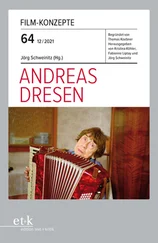Andrea Dworkin - Right-wing Women
Здесь есть возможность читать онлайн «Andrea Dworkin - Right-wing Women» весь текст электронной книги совершенно бесплатно (целиком полную версию без сокращений). В некоторых случаях можно слушать аудио, скачать через торрент в формате fb2 и присутствует краткое содержание. Жанр: Старинная литература, на английском языке. Описание произведения, (предисловие) а так же отзывы посетителей доступны на портале библиотеки ЛибКат.
- Название:Right-wing Women
- Автор:
- Жанр:
- Год:неизвестен
- ISBN:нет данных
- Рейтинг книги:4 / 5. Голосов: 2
-
Избранное:Добавить в избранное
- Отзывы:
-
Ваша оценка:
- 80
- 1
- 2
- 3
- 4
- 5
Right-wing Women: краткое содержание, описание и аннотация
Предлагаем к чтению аннотацию, описание, краткое содержание или предисловие (зависит от того, что написал сам автор книги «Right-wing Women»). Если вы не нашли необходимую информацию о книге — напишите в комментариях, мы постараемся отыскать её.
Right-wing Women — читать онлайн бесплатно полную книгу (весь текст) целиком
Ниже представлен текст книги, разбитый по страницам. Система сохранения места последней прочитанной страницы, позволяет с удобством читать онлайн бесплатно книгу «Right-wing Women», без необходимости каждый раз заново искать на чём Вы остановились. Поставьте закладку, и сможете в любой момент перейти на страницу, на которой закончили чтение.
Интервал:
Закладка:

reaches back one decade. Abortion has been legalized just under one
decade. * The facts should not be obliterated yet. Millions of respectable, God-fearing, married women have had illegal abortions. T hey thank their God that they survived; and they keep quiet.
T heir reasons for keeping quiet are women’s reasons. Because
they are women, their sexuality or even perceptions of it can discredit or hurt or destroy them— inexplicably shame them; provoke rage, rape, and ridicule in men. Dissociation from other women is
always the safest course. T hey are not sluttish, but other women
who have had abortions probably are. T hey tried not to get pregnant (birth control being illegal in many parts of the country before 1973), but other women who had abortions probably did not.
They love their children, but other women who have had abortions
may well be the cold mothers, the cruel mothers, the vicious
women. T hey are individuals of worth and good morals who had
compelling reasons for aborting, but the other women who had
abortions must have done something wrong, were wrong, are
somehow indistinct (not emerged from the primal female slime as
individuals), were sex not persons. In keeping the secret they cut
themselves off from other women to escape the shame of other
women, the shame of being the same as other women, the shame of
being female. T hey are ashamed of having had this bloody experience, of having this female body that gets torn into again and again and bleeds and can die from the tearing and the bleeding, the pain
and the mess, of having this body that was violated again, this time
by abortion. Admitting to an illegal abortion is like admitting to
having been raped: whoever you tell can see you, undress you,
spread your legs, see the thing go in, see the blood, watch the pain,
almost touch the fear, almost taste the desperation. The woman
*A s this book is published, abortion has been legalized not quite one decade, but never without restrictions permitted by the Supreme Court and imposed by state legislatures and often with unconstitutional restrictions
imposed by state or local governments until overturned by federal courts
(paternal and parental consent requirements, for instance).


who admits to having had an illegal abortion allows whoever hears
her to picture her—her as an individual in that wretched body—in
unbearable vulnerability, as close to being punished purely for
being female as anyone ever comes. It is the picture of a woman
being tortured for having had sex.
There is the fear of having murdered: not someone, not real
murder; but of having done something hauntingly wrong. She has
learned (learned is a poor word for what has happened to her) that
every life is more valuable than her own; her life gets value through
motherhood, a kind of benign contamination. She has been having
children in her mind, and getting her value through them, since
she herself was a baby. Little girls believe that dolls are real babies.
Little girls put dolls to sleep, feed them, bathe them, diaper them,
nurse them through illnesses, teach them how to walk and how to
talk and how to dress—love them. Abortion turns a woman into a
murderer all right: she kills that child pregnant in her since her
own childhood; she kills her allegiance to Motherhood First. This
is a crime. She is guilty: of not wanting a baby.
There is the fear of having murdered because so many men believe so passionately that she has. To many men, each aborted pregnancy is the killing of a son—and he is the son killed. His
mother would have killed him if she had had the choice. These
men have a peculiarly retroactive and abstract sense of murder: if
she had had a choice, I would not have been born—which is
murder. The male ego, which refuses to believe in its own death,
now pushes backward, before birth. / was once a fertilized
egg; therefore to abort a fertilized egg is to kill me. Women keep
abortions secret because they are afraid of the hysteria of men
confronted with what they regard as the specter of their own extinction. If you had your way, men say to feminists, my mother would have aborted me. Killed me. “. . . I was born out of wedlock
(and against the advice that my mother received from her doctor), ”
Jesse Jackson writes in fervent opposition to abortion, “and therefore abortion is a personal issue for me. ” 2 The woman’s re


sponsibility to the fertilized egg is im aginatively and with great
conviction construed to be her relation to the adult male. At the
very least, she must not murder him; nor should she outrage his
existence by an assertion of her separateness from him, her distinctness, her importance as a person independent of him. The adult male’s identification with the fertilized egg as being fully
himself can even be conceptualized in terms of power: his rightful
power over an impersonal female (all females being the same in
terms of function). “The p o w er I had as one cell to affect m y environment I shall never have again, ” 3 R. D. Laing laments in an androcentric meditation on prebirth ego. “M y environment” is a
woman; the adult male, even as a fertilized egg, one cell, has the
right of occupation with respect to her— he has the right to be
inside her and the rightful power to change her body for his sake.
This relation to gestation is specifically male. Women do not think
of themselves in utero when they think either of being pregnant or
of aborting; men think of pregnancy and abortion prim arily in
terms of themselves, including what happened or might have happened to them back in the womb when, as one cell, they were themselves.
Women keep quiet about abortions they have had, illegal abortions, because they are humiliated by the memory of those abortions; they are humiliated by the memory of their desperation, the panic, finding the money, finding the abortionist, the dirt, the danger, the secrecy. Women are humiliated when they remember asking for help, begging for help, when they remember those who turned aw ay, left them out in the cold. Women are humiliated by
the memory of the fear. Women are humiliated by the memory of
the physical intrusion, the penetration, the pain, the violation;
countless women were sexually assaulted by the abortionist before
or after the abortion; they hate remembering. Women are hum iliated because they hated themselves, their sex, their female bodies, they hated being female. Women hate remembering illegal abortions because they almost died, they could have died, they wanted

Интервал:
Закладка:
Похожие книги на «Right-wing Women»
Представляем Вашему вниманию похожие книги на «Right-wing Women» списком для выбора. Мы отобрали схожую по названию и смыслу литературу в надежде предоставить читателям больше вариантов отыскать новые, интересные, ещё непрочитанные произведения.
Обсуждение, отзывы о книге «Right-wing Women» и просто собственные мнения читателей. Оставьте ваши комментарии, напишите, что Вы думаете о произведении, его смысле или главных героях. Укажите что конкретно понравилось, а что нет, и почему Вы так считаете.












